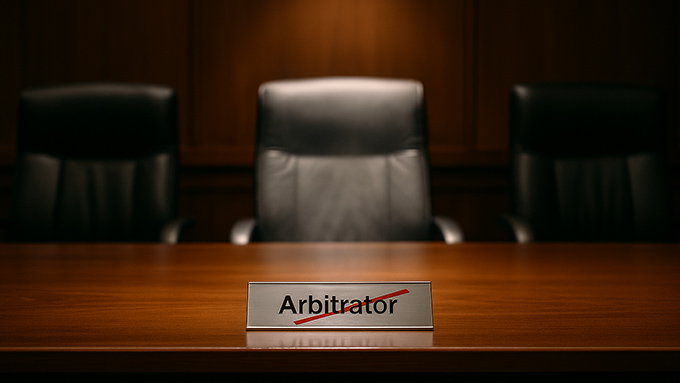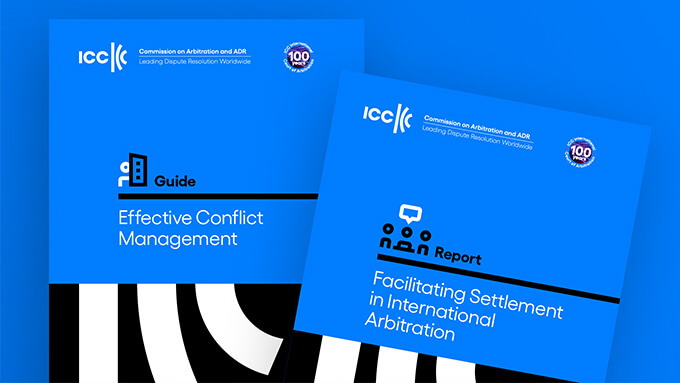Current Issues in Expedited Procedures in Arbitration
As a current practice, expedited procedure rules have been introduced as a remedy against the rising time and costs of arbitration proceedings, in principle, to be applied if the amount in dispute does not exceed a certain threshold. International arbitration aims to resolve disputes in a timely and cost-efficient manner, which would be achieved through a special procedure to be applied in order to ensure this efficiency.
Current issues in expedited procedures, which are found under various institutional arbitration rules, shall be analyzed in this newsletter article.
Expedited Procedures under Institutional Arbitration Rules
A brief review of institutional arbitration rules reveals that expedited procedures may be found under many institutional arbitration rules. A very recent example is the International Chamber of Commerce (“ICC”) Arbitration Rules, which adopted expedited procedure rules to be effective as of March, 2017.
Some institutional rules provide an opt-out system, which sets forth expedited procedures for claims under a certain threshold. The opt-out system requires that the parties who desire that the expedited procedure rules shall not be applied to them shall exclude them. The ICC, the Swiss Chambers’ Arbitration Institution (SCAI), the Hong Kong International Arbitration Center (HKIAC) and the Singapore International Arbitration Center (SIAC) are among the institutions that provide an opt-out system. Additionally, the Istanbul Arbitration Centre (ISTAC) is also among these institutions. The ISTAC provides separate Fast Track Arbitration Rules, to be would be applied in disputes under 300.000 Turkish Liras, unless the parties have decided otherwise[1]. Accordingly, it is possible for the parties to opt-out of these rules.
The other approach for the use of expedited procedures is an opt-in mechanism that requires the parties to refer to expedited procedure rules, specifically, in order to ensure their application. As an example, the DIS (German Institution of Arbitration) Supplementary Rules for Expedited Proceedings sets forth that the rules shall only be applied if the parties have referred to them in their arbitration agreement, or if they agreed to their application prior to filing a statement of claim[2]. Additionally, the Arbitration Institute of the Stockholm Chamber of Commerce (SCC) also provides expedited arbitration rules that require an agreement between the parties to resolve the disputes under the SCC Rules for Expedited Arbitration[3].
On the other hand, the London Chamber of International Arbitration (LCIA) Arbitration Rules do not provide a separate expedited procedure. Under its official website, the LCIA states that while there are no separate rules for fast-track arbitrations, the LCIA Arbitration Rules may be adapted to achieve an expedited process. Accordingly, it is emphasized that if the parties wish to allow for a fast-track arbitration in their contract, the LCIA will provide recommended clauses for this purpose[4].
Appointment of a Sole Arbitrator
The appointment of a sole arbitrator is among the issues that are within the realm of debate under expedited procedures.
Under the ICC Rules, pursuant to Article 2(1) of Appendix VI regulating expedited procedures, a sole arbitrator may be appointed by the International Court of Arbitration (“Court”) notwithstanding any contrary provision of the arbitration agreement[5]. Accordingly, the parties’ will may be superseded by this provision, and the parties may be faced with an arbitration proceeding conducted by a sole arbitrator, even though they prefer a panel composed of more than one arbitrator. The ICC Note to Parties and Arbitral Tribunals on the Conduct of the Arbitration under the ICC Rules of Arbitration[6] (“Notes”) justify this practice in stating that by submitting to arbitration under the Rules, the parties agree that any reference made to three arbitrators in their arbitration agreement is subject to the Court’s discretion to appoint a sole arbitrator, if the expedited procedure provisions are applied[7].
Other institutional arbitration rules have adopted a different approach to the issue. For instance, the SCAI Rules do not set forth an automatic appointment of a sole arbitrator, and provide that the Secretariat shall invite the parties to agree to refer the case to a sole arbitrator, if the arbitration agreement provides for an arbitral tribunal composed of more than one arbitrator[8].
The appointment of a sole arbitrator could be problematic considering the importance of party consent in international arbitrations. Arbitration is based on party consent, since it is an exception to state court litigation. Accordingly, the parties should be free to tailor the proceedings in accordance to their own will, and the appointment of a sole arbitrator, even though the parties decided otherwise, could be contrary to the general principles as to which arbitration as a dispute resolution mechanism is based.
On the appointment of a sole arbitrator in contradiction to the parties’ previous agreement, the decision of the Singapore High Court concerning an award made under the SIAC Expedited Procedure is worthy of note[9]. In this decision, one of the parties challenged the award based on the contention that the appointment of a sole arbitrator instead of three arbitrators, as stated in the arbitration agreement, constituted grounds to set-aside, since the arbitral procedure had not been conducted in accordance with the agreement of the parties. The Singapore court rejected this challenge, giving weight to the SIAC Court President’s discretion to appoint a sole arbitrator under the SIAC Rules. Therefore, the discretionary power of the court has been recognized by the Singapore High Court.
It should also be pointed out that, in practice, the parties tend to appoint a sole arbitrator in disputes with a lower amount of claim without being particularly concerned about the number of arbitrators; therefore, the expedited procedure with a sole arbitrator reflects the practice.
Particularities in Expedited Proceedings and the Right to be heard
In addition to conducting the arbitration with a sole arbitrator, expedited proceedings provide other measures with the aim to achieve efficiency and quick resolution of disputes. However, these measures should not affect the parties’ fundamental procedural rights for the sake of a quick resolution of disputes, such as the right to be heard.
As an example to the particularities of expedited proceedings, the terms of reference, which is an important document in arbitration proceedings, is not required to be drafted. It should also be emphasized that the arbitrator enjoys considerable discretion as per the procedural measures he considers appropriate, such as limiting the document production, written submissions and witness evidence. It may also be possible to conduct hearings by means of videoconference, or not to conduct a hearing, and to render a decision on a document-basis. While these provisions aim to ensure efficiency, they should find a balance between the parties’ will and their fundamental procedural rights.
Finally, the reasoning of the awards is one of the elements that should not be undermined in order to ensure an expeditious procedure. The reasoning of the award is crucial, which permits the parties to grasp the reasoning behind the award, and also, which enables them to make use of their rights pertaining to challenging of the award, and to resist its enforcement. In that vein, it could be possible to shorten the reasoning of the award, but not providing any reasoning on the award is not preferable. As an example, concerning ICC arbitrations, the Notes clarify that the award under the expedited procedure shall also be reasoned. Some sections of the award, whether factual or procedural, may be limited to what the arbitrators consider to be necessary for the understanding of the award, but the award cannot be deprived of a reasoning.
Conclusion
Expedited procedure rules have been adopted under many institutional arbitration rules, in order to offer a more efficient resolution of disputes. For the sake of resolving the disputes in a time and cost-efficient manner, expedited procedure rules provide specific provisions that differ from the usual arbitration proceedings. However, these provisions should not be overreaching and contradicting the party agreement, which is the basis of arbitration proceedings as a dispute resolution mechanism. Also, it is important to ensure the parties’ fundamental procedural rights.
[1] Istanbul Arbitration Centre Fast Track Arbitration Rules. Source: https://istac.org.tr/wp-content/uploads/2016/03/istac_tahkim_kurallari_v3_EN.pdf.
[2] Article 1.1 of the DIS-Supplementary Rules for Expedited Proceedings. Source: http://www.disarb.org/de/16/regeln/dis-supplementary-rules-for-expedited-proceedings-08-srep-id4.
[3] For detailed information on the expedited procedure under the SCC Rules for Expedited Arbitrations, please see: http://www.sccinstitute.com/dispute-resolution/expedited-arbitration/whats-the-procedure/.
[4] Please see “Frequently Asked Questions” under: href="#Fast-Track.
[5] Article 2(1) of Appendix VI of the Rules. Source: https://iccwbo.org/dispute-resolution-services/arbitration/rules-of-arbitration/.
[6] The Notes may be accessed under: https://cdn.iccwbo.org/content/uploads/sites/3/2017/03/icc-note-to-parties-and-arbitral-tribunals-on-the-conduct-of-arbitration.pdf.
[7] Notes, §76.
[8] Article 42(2)(c) of the SCAI Arbitration Rules.
[9] For the analysis of the decision please see Gary Born – Jonathan W. Lim, AQZ v. ARA: Singapore High Court Upholds Award Made under SIAC Expedited Procedure. Source: http://arbitrationblog.kluwerarbitration.com/2015/03/09/aqz-v-ara-singapore-high-court-upholds-award-made-under-siac-expedited-procedure/.
All rights of this article are reserved. This article may not be used, reproduced, copied, published, distributed, or otherwise disseminated without quotation or Erdem & Erdem Law Firm's written consent. Any content created without citing the resource or Erdem & Erdem Law Firm’s written consent is regularly tracked, and legal action will be taken in case of violation.
Other Contents

Emergency arbitration addresses the need for interim protection before the arbitral tribunal is constituted in institutional arbitrations. Arbitral institutions establish short timeframes to ensure parties can obtain interim relief quickly. For example, the International Chamber of Commerce (“ICC”) requires that the emergency...

International arbitration remains the preferred mechanism for resolving complex cross-border disputes. Yet despite its advantages—neutrality, enforceability, flexibility—arbitration is frequently criticized for being too slow, too expensive, and too procedurally heavy. Often, parties proceed through hearings and...

For arbitral awards rendered in international commercial arbitration to produce legal effects in foreign jurisdictions, they must be subjected to proceedings for “recognition” and “enforcement.” This process is governed by the New York Convention as well as by the provisions of the Law on Private International Law...

Arbitrability, the determination of whether a specific subject matter can be resolved through arbitration, constitutes a fundamental aspect of arbitration within the scope of international commercial dispute resolution. This concept draws a delicate balance between party autonomy—a fundamental principle of arbitration...

The recognition, enforcement, and annulment of foreign court and arbitral awards in Türkiye are processes in which public policy emerges as one of the most critical criteria for review, both in theory and in practice. The Court of Cassation decisions determine the direction of case law regarding the scope and...

As is well known, the action for annulment of objection is a special type of lawsuit regulated under Article 67 of the Turkish Execution and Bankruptcy Law No. 2004 (“EBL”). The primary objective of this action is to nullify a debtor’s objection to execution proceedings. Despite its procedural function of facilitating...

On 16 December 2024, the London Court of International Arbitration (“LCIA”) released its third batch of challenge decisions covering the period from 22 July 2017 to 31 December 2022. The LCIA has also issued a detailed commentary that identifies key legal themes and analytical trends, offering practitioners...

The International Chamber of Commerce (“ICC”) has published its report on the dispute resolution statistics for 2023 (“Report”) , shedding light on the evolving landscape of international arbitration...

Syndicated loans undoubtedly hold a significant position among global financing models. In 2023 alone, 3,655 syndicated loans were provided to companies in the US, with their total value reaching USD 2.4 trillion...

Preliminary attachment refers to the temporary seizure of a debtor's assets to secure a creditor's claim. While it serves as a vital instrument for safeguarding the rights of creditors, it is subject to specific and stringent conditions under Turkish law to prevent any potential misuse...

One of the most important reasons for parties to choose arbitration is the opportunity to freely choose their arbitrators. This freedom granted to the parties also distinguishes arbitration from proceedings before state courts, where the parties are deprived of the power to determine the judges who will conduct the...

The 6th Civil Chamber of the Court of Cassation ruled on October 12, 2022, that national courts have jurisdiction over objections to provisional measures in international arbitration disputes...

The declaration of intent to resolve disputes through arbitration is the fundamental constituent element of an arbitration agreement. To speak of a valid arbitration agreement, the parties' intention to arbitrate must emerge in a way that leaves no room for dispute...

In the wake of the evolving dynamics of commercial transactions, the Netherlands Arbitration Institute Foundation (NAI) announced new arbitration rules . 2024 NAI Arbitration Rules are in force as of 1 March 2024 and will be applicable on proceedings filed on or after this date...

With the global shift to online activities, domain names play a crucial role in identifying businesses. It is more common than ever for a domain name to be registered that is confusingly similar to a trademark or service mark...

The ICC Commission on Arbitration and ADR (“Commission”) published a new guide and report with the aim to increase awareness on alternative dispute resolution (“ADR”) mechanisms to prevent disputes and strengthen the relationship between all stakeholders.The Guide on Effective Conflict Management...

Mergers and Acquisitions (“M&A”) are restructuring of companies or assets through various types of financial transactions, such as mergers, acquisitions, purchase of assets, or management acquisitions. This Newsletter article covers M&A disputes being solved before arbitral tribunals.

In the context of arbitration practice, the principle of revision au fond means that the courts can not examine the merits of a dispute when reviewing an arbitral award. This principle is most commonly encountered in set aside and enforcement proceedings. An arbitral award is evidence of the parties’ willingness...

Under Turkish law, parties may agree on the settlement of disputes that have arisen or may arise, regarding the rights that they can freely dispose of, by arbitration. However, disputes which are not subject to the will of parties, such as the disputes relating to in rem rights of immovables, bankruptcy law...

On 4 September 2020, a research project “Does a Right to a Physical Hearing Exist in International Arbitration?” was launched by an International Council for Commercial Arbitration (“ICCA”) taskforce. Due to the Covid-19 pandemic, many arbitration hearings were held online. Many institutional rules...

Dubai International Arbitration Center amended its Arbitration Rules on 25 February 2022. The 2022 Arbitration Rules were published on 2 March 2022 and came into effect on 21 March 2022. The Rules will be applied to arbitrations that are filed after 21 March 2022; unless parties agree otherwise...

In the aftermath of the Achmea decision, controversies on intra-EU arbitrations continue. Most recently, the Paris Court of Appeal has annulled two arbitral awards rendered against Poland. Meanwhile, the Higher Regional Court of Berlin has refused to declare that an Irish investor’s ICSID claim...


Under Turkish law, the legal remedy that can be applied against arbitral awards is an annulment action. Law on International Arbitration No. 4686 (“IAL”) finds its application area in arbitration proceedings where Turkey is the place of arbitration...

It is well known that following a decision of the Court of Justice of the European Union, problems arose related to arbitration of intra-EU disputes, and particularly arbitration under the Energy Charter Treaty...

Arbitration in corporate law contains controversial elements in many respects, especially the issue of arbitrability. Even in legal systems where these disputes are considered to be arbitrable, uncertainties remain on whether an arbitration clause can be included in the articles of...





Arbitration has benifited from a great increase in the use of technology which has directly effected the conduct of proceedings. More particularly, with digitalization, the way that we conduct arbitration proceedings has been changed to reflect the current needs of parties, with an aim of increasing time...
































































